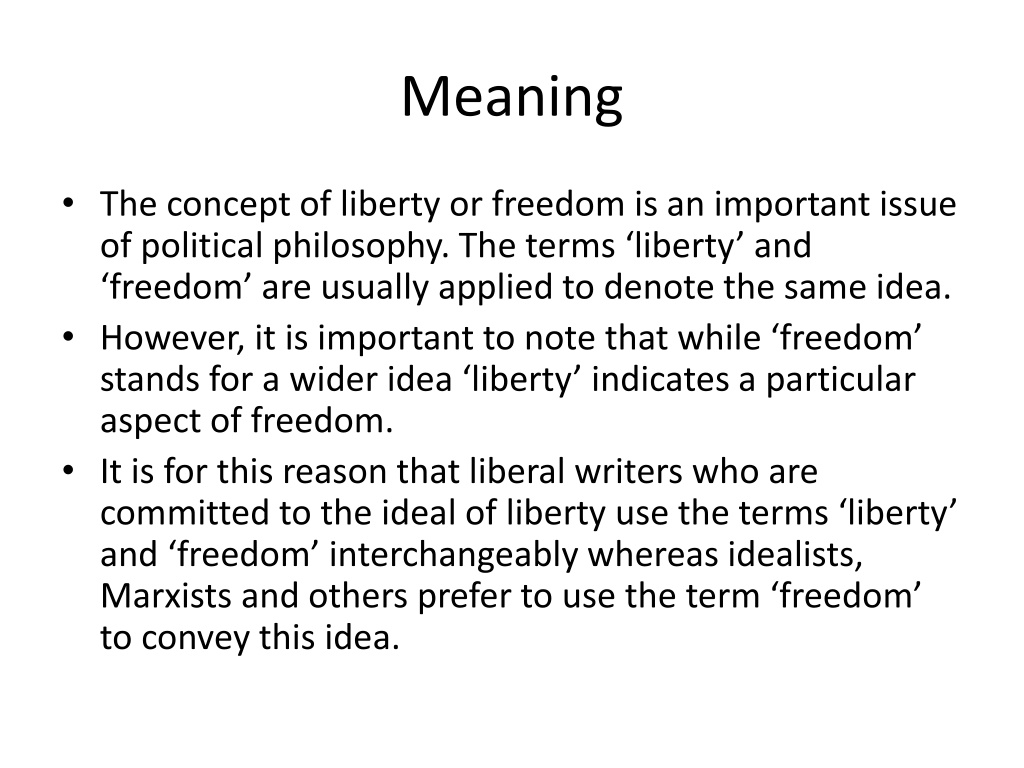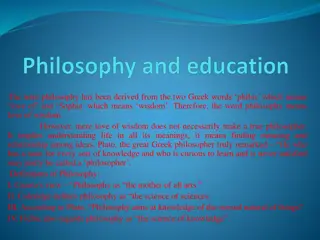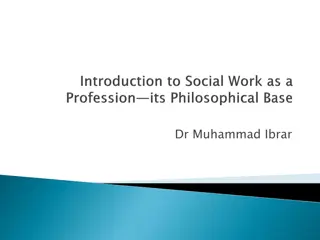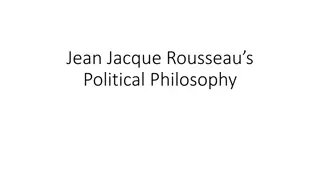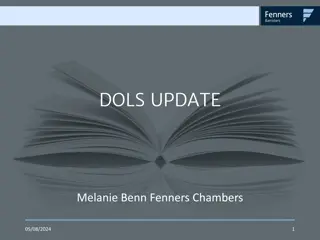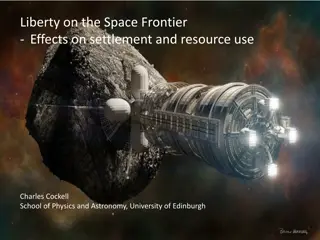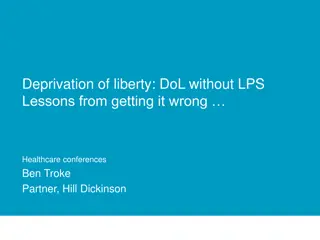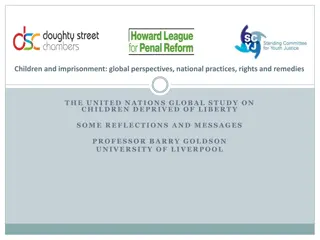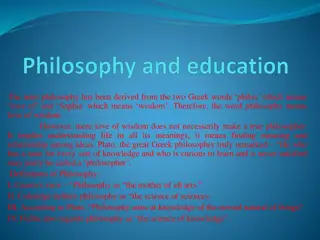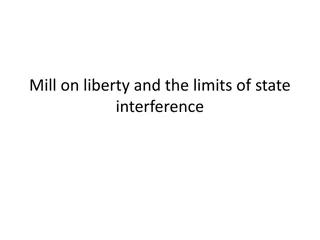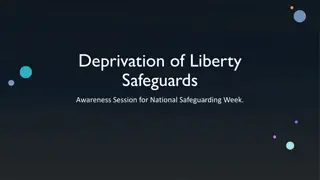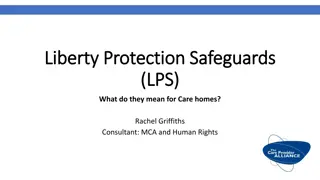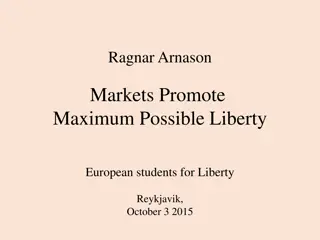Exploring the Concept of Freedom and Liberty in Political Philosophy
The concept of liberty and freedom holds significant importance in political philosophy. While often used interchangeably, liberty signifies a specific aspect of freedom. Freedom encompasses the quality and condition of human beings, distinguishing them from other living beings. It involves the control over oneself and external nature, founded on knowledge of natural necessity. Friedrich Engels discusses freedom as the distinctive quality of human beings, emphasizing the evolution towards freedom through historical development.
Download Presentation

Please find below an Image/Link to download the presentation.
The content on the website is provided AS IS for your information and personal use only. It may not be sold, licensed, or shared on other websites without obtaining consent from the author. Download presentation by click this link. If you encounter any issues during the download, it is possible that the publisher has removed the file from their server.
E N D
Presentation Transcript
Meaning The concept of liberty or freedom is an important issue of political philosophy. The terms liberty and freedom are usually applied to denote the same idea. However, it is important to note that while freedom stands for a wider idea liberty indicates a particular aspect of freedom. It is for this reason that liberal writers who are committed to the ideal of liberty use the terms liberty and freedom interchangeably whereas idealists, Marxists and others prefer to use the term freedom to convey this idea.
Meaning (Contd.) In a broad sense, the term freedom implies two things: i. The quality of human being; and ii. The condition of human being. It is important to note that politics is largely concerned with the second sense, i.e. the condition of human being while philosophy is concerned with freedom in both senses of the term.
Freedom as the Quality of Human Being In this sense, only a human being, as distinguished from other living beings, is capable of freedom. Animals, birds and insects are governed by the rule of the struggle for existence and survival of the fittest . They have no aim of life beyond mere existence. Human beings, on the other hand, have distinguished themselves from other living beings as they claim to have an aim in life. They have created the whole complex set of institutions-civilization and culture in pursuance of this aim.
Freedom as the Quality(Contd.) Animals are mere slaves of nature; human being has largely learnt to tame, control and harness nature to serve her/his purpose of life. Thus, freedom is the distinctive quality of a human being. As very rightly it is said that every animal leaves traces of what it was; human being alone leaves traces of what s/he creates. Friedrich Engels, a close associate of Karl Marx, sought to define freedom as the quality of human being by drawing a distinction between necessity and freedom.
Freedom as the Quality(Contd.) Necessity refers to the condition under which the life of human being is governed by laws of nature, such as the law of gravitational force, which exist independently of a human being s will. One can acquire scientific knowledge of these laws for one s own benefit, but cannot change them at one s will. This applies both to the laws of external nature and to laws of our own nature. Freedom, therefore, consists in the control over ourselves and over external nature, a control founded on knowledge of natural necessity.
Freedom as the Quality(Contd.) Thus, it is necessarily a product of historical development. In the initial stage the human beings who separated themselves from the animal kingdom were in all essentials as unfree a the animals themselves, but each step forward in the field of culture was a step towards freedom. In a nutshell, freedom as the quality of human being depends on obtaining scientific knowledge of inexorable laws of nature and applying them for the benefit of mankind. In the absence of such knowledge human beings are bound to remain slaves of nature. Therefore, capacity to gain scientific knowledge is the source of their freedom.
Freedom as the Condition of Human Being When this dimension of freedom is considered, we enter the realm of liberty which is usually defined as absence of constraint . Constraint or restraint may be internal as well as external. Politics is largely concerned with external restraint. When we contemplate positive action by the state for the removal of a constraint , it is referred to the realm of politics. As in philosophy both internal as well as external restraint are taken into consideration the concept of liberty has very wide implications in the sphere of political philosophy.
Freedom as the Condition (Contd.) Liberty is demanded for the human being (as a condition of life) because we treat her/him to be a rational creature. Liberty, in this sense, implies that when a human being applies her/his rational faculty and comes to know what is best for her/him as well as for society s/he should have the ability to achieve it. Therefore, the ability of a human being should not be hindered by any external, unreasonable restraint. Since here our demand is confined to the removal of external restraint it is termed as negative liberty.
Freedom as the Condition (Contd.) It follows then that if a rational agent has no freedom or liberty, s/he will not be able to make the best use of her/his faculties of mind and body. Absence of freedom in this sense means the condition of slavery or bondage. The proper test of freedom for an individual is whether s/he has a real choice before her/him. A person who is entangled between the devil and the deep sea can have no freedom of choice. For example, champions of capitalism argue that the worker is as free as the capitalist under this system to enter or not to enter into a contract.
Freedom as the Condition (Contd.) But the choice for the worker is for working under oppressive conditions or starving. This is no choice at all. It can be referred as Hobson s choice. There can be situations when a human being may not be free even if there is no external restraint. When a person is suffering from physical pain or is mentally disturbed, s/he may not be able to do what s/he loves to do. An individual is not only a rational creature, s/he is also a sensitive creature. S/he may feel constrained due to hunger, thirst or fatigue.
Freedom as the Condition (Contd.) Thus, freedom in the widest sense requires that one should not feel any internal or external constraint. This means freedom from physical pain, disease, ignorance, fear or want. Though it is very difficult to look for such freedom in the real world a state can be judged by its performance in the sphere of minimizing all possible constraints in the life of its citizens. This step would enhance their positive liberty.
Freedom as the Condition (Contd.) As has already been pointed out earlier we wish to have freedom for the rational agent. A person under certain circumstances may depart from rational thinking and may forget the value of freedom. For example, a slave may feel contented with slavery. Similarly, some people may turn to be slaves of superstitions, irrational customs and social practices. There can be other occasions when some people may be swayed away by consumer culture and may become indifferent to joys of nature.
Concluding Observations They may not be inclined to derive any pleasure from the treasures of literature, art and music which enable a person to rise above trivial wants. Thus, if a person is not free in the real sense and still s/he is not keen to have freedom, it follows that efforts should be made to arouse her/his conscience and make her/his anxious to win freedom.
